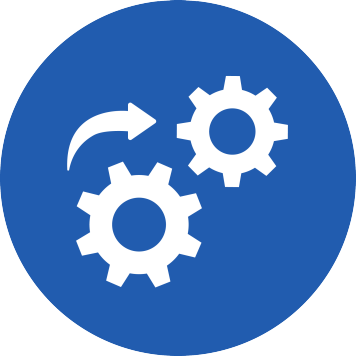Subject-specific competencies
Knowledge of theories, concepts, and techniques as well as its application to specific fields
Each competency below presents a general definition and describes learning outcomes regarding knowledge, skills, and attitudes. The subject-specific competencies are specified in detail by the degree programmes.
Explore these competencies

Ability to understand and apply the basic concepts and definitions that are relevant for a scientific subject or a field
Knowledge description
- Theoretical knowledge of relevant phenomena and problems in own field
- Understanding of linkages between own field and other fields, and society
Skills description
- Ability to apply theories properly to understand phenomena and problems
- Ability to make linkages between own field and other fields, and society
- Ability to seek and manage information
Attitudes description
- Believe in the worth of own work or field and stay informed of new developments
- Be open to other fields as an opportunity to gain a global outlook

Ability to understand and apply techniques and technologies in use within a specific scientific subject or field
Knowledge description
- Knowledge of terminologies, techniques, and technologies in own field
- Knowledge of research methods in use in own field
Skills description
- Ability to apply techniques, technologies, and research methods effectively and efficiently
- Ability to use terminologies properly
Attitudes description
- Value and strive for excellence and rigor in own field
A holistic set of competencies
Subject-specific competencies lie at the core of our degree programmes and represent our excellence. Employers and latest studies point out that these competencies alone are not enough to cope with an increasingly more complex and fast-moving society.
Integrating the method-specific, social and personal competencies into our students' learning journey at ETH Zurich can help students acquire and deploy their subject-specific competencies to their very best level.

What employers, ETH alumni and employees say
Explain why students need to learn
Quite often students tend to learn to pass the exam. Of course, it helps, but it helps even more if they know why they want to build those competencies as part of their portfolio to be able to apply knowledge and abilities to their future career.
Dr. Erik Jentges, Educational developer D-MTEC
Promote a holistic set of competencies
As a researcher, one develops skills like project management, self-management, extending knowledge in a dynamic and interdisciplinary team, but these skills can help you pursue a non-academic career too and make you more resilient towards change.
ETH alumna, Doctorate D-BIOL
Further Readings
- external page call_made Engineering Students' Perception of Soft Skills, Industry Expectations, and Career Aspirations, 2016, Itani & Srour
- external page call_made Soft Skills Are Essential To The Future Of Work, 2021, FORBES
- external page call_made Developing transferable skills, 2020, Michael Page
- external page call_made Future of Compliance: People deep-dive. Part I - Skills, 2021, PwC
- external page call_made We need a global reskilling revolution, 2020, WEV
- external page call_made Global Skills Index, 2020, Coursera
- external page call_made The Future Of Education? Flexible Formats, Soft Skills, Collaboration And Responsible Leadership, 2021, IESE Business School
- chevron_right La Cara, B., Gemünden, M. & Koch-Kiennast, B. (2023). Fostering social and personal competencies in higher education: The ETH Competence Framework case, ETH Learning and Teaching Journal, 4 (1), 105-118.